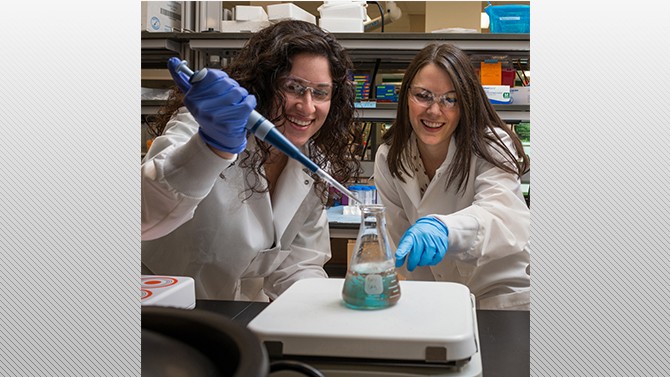Antibodies have emerged as invaluable tools for the study and treatment of cancer because they can manipulate, with high specificity, the signaling pathways that drive cancer progression.
“However, although they’re effective, antibodies are extremely expensive and require high dosages that can produce adverse side effects, both of which limit their therapeutic success,” says Emily Day, assistant professor of biomedical engineering at the University of Delaware.
To overcome these limitations, antibodies can be conjugated, or chemically linked, to nanoparticles, enhancing their ability to bind to targets through a property known as multivalency.
Multivalent binding involves the interaction of multiple complementary functionalities. In the case of antibody-nanoparticle conjugates, multiple antibodies on each nanoparticle can bind with multiple targeted cell surface receptors, which increases the overall binding strength.
Day and her doctoral student Rachel Riley hypothesized that multivalent binding could be exploited to specifically bind targeted cells and thus enhance the inhibition of oncogenic, or tumor-causing, cell signaling.

